Free camping is an ideal way to have a holiday or enjoy yourself for a few days without spending much. I use the words “without spending much” because you’ll still have to bear expenses on fuel, food, water and certain other stuff when you go for free camping.
Most popular campsites in the US charge a small fee from campers. That’s because they need to pay for maintenance of the area, including supplying electricity and water for campers. Some paid camping sites also have emergency medical centres that provide first aid for injuries, snakebites and other such situations.
However, there’re plenty of free camping sites available near you. Only you need to know where to look for them and how to use these camping sites.
If you’re one of those people that loves camping, continue reading. In this article, I will be discussing about various areas where you can find free camping facilities nearby.
Advantages of Nearby Camping Areas
Actually, you can find wonderful camping areas, most of them free, all across the USA. However, there’re some advantages of finding camping sites and places near you.
The first advantage is that you can go on a short or long camp almost immediately. For example, you might wish to enjoy a weekend outdoors and just go nearby for camping. Secondly, you would spend much lesser on gasoline when you camp nearby.
The other and perhaps the greatest advantage of camping nearer home is that you can rush back to safety should you have any incidents or emergencies.
Nowadays, mobile Internet and Wi-Fi hotspots also make it possible for freelancers to work while camping, if necessary.
While camping is an excellent way to have a quick holiday- working or lazing around- there’re also some precautions that you need to take.
I will now discuss in brief some of these precautions.
Precautions While Camping
You might, of course, know of some precautions, such as carrying enough potable water for drinking and food, fuel and other stuff. However, lots of campers have come across unexpected and unsuspected stuff while camping outdoors, especially in the wilderness or unpopulated areas.
Here, I will list some of these.
- Snakebites: This is the bane of every camper. Nobody knows where snakes live. A reptile could easily slither into your tent or even camper or vehicle. Though snakes are mostly timid and avoid human contact, some of them could attack and bite you if they sense a threat. Some snakes aren’t venomous, but others are deadly. They pack in hematotoxin and neurotoxin and can cause death- sometimes instant or, at times, slow, agonizing and painful.
- Robberies: Most campers are prone to robberies since they camp in areas that’re usually isolated. Criminals can try and target campers in such places and steal your valuables or even the vehicle, which leaves you stranded. Therefore, it’s better to have some sort of safety such as a firearm. Also, ensure that you don’t publicize where you’re camping on social media or word of mouth.
- Phasmophobia: This is a term that you’ll seldom hear. Phasmophobia is a fear of ghosts and spooks. You might not believe in ghosts and evil spirits, but Phasmophobia is a syndrome that sometimes strikes campers in unpopulated areas. They see shadows of perfectly normal things, such as animals, and suddenly develop an intense fear that something paranormal is lurking nearby.
- UFOs and Alien Abductions: Whether there’s life on other planets or some other dimension of existence is highly debatable. However, some campers have claimed in the past to see Unidentified Flying Objects landing near their camping sites. Others have gone further to claim they were actually abducted aliens from some other planet. Regardless, if you’re prone to be scared easily, even a simple meteor might seem like an alien vehicle to you and trigger panic.
- Animal Attacks: Generally, animals don’t attack humans unless provoked. However, in some cases, a hungry animal could attack you or the vehicle itself. The best thing to do is avoid feeding wild animals since it can attract more of their clan to come to your camp. Also, find out from locals or the US Forest Service if there’s any such wildlife in the area where you wish to camp.
- Camper’s Belly: Lots of campers love to fish or hunt and cook their catch for food. This is good enough as long as you know what you’re eating and are cooking it properly after a thorough cleaning. Unfortunately, several campers have fallen sick with food poisoning after consuming fish or birds that seemed edible. Furthermore, cooking in the open can render the food prone to contamination.
- Common injuries: You are prone to common injuries, too, while camping. These can arise out of falls or handling equipment. There’s nothing unusual about such injuries because you could sustain them at home or the office too. Only help might not be immediately available. Therefore, make sure you carry a good first-aid kit and some over-the-counter painkillers and other stuff.
- Drinking water: At some locations, getting water for drinking and cooking can be a problem, even if you’re near a lake, pond, stream or river. The water from these sources might not be potable or even contaminated with industrial effluents. Therefore, carry adequate stocks of drinking water. Remember, outdoor activity can make you more thirsty than usual. Pack in some oral rehydration powder as well.
- Insect bites: There’s no way to tell in advance whether a camping site is free of mosquitos or ticks, or other such insects that inflict bites. Therefore, carry some insect repellant spray or lotion. This could also help you protect against insect-borne sicknesses. Though such problems are rare in the USA, it’s worth taking the necessary care.
- Sunstroke and heat exhaustion: If you’re planning on camping in summer or during warm weather, make sure you don’t expose yourself too much to sunlight. That could lead to sunstroke, which could prove fatal or heat exhaustion. Consult your physician on how to avoid sunstroke and heat exhaustion while camping out during summer.
These aren’t the only precautions you should take. The best thing to do is speak to a lot of campers that know the site where you intend to go. Find in advance about situations that you could encounter. While things such as Phasmophobia and fear of alien abductions are self-created and possibly non-existent, the others are tangible enough to warrant precautionary measures.
Ways to Camp in the USA
Furthermore, there’re various ways to camp in the US too. This depends on the type of camping holiday you wish to have. I will briefly mention these types for your reference.
- Dispersed Camping: This is a term used by the National Forest Service and Department of Land Management for camping on public land. Usually, dispersed camping sites can be found on their websites and involve staying a little away from national parks and other such sites.
- Free Camping: For free camping, you will have to find a store or restaurant or any other place where you can park your camper and enjoy a couple of nights or even a weekend in their parking lot. However, you will require the permission of their store manager before you camp there to avoid getting into trouble with the cops.
- Backpack Camping: Involves camping with the bare minimum necessities that fit into your backpack. Usually, backpack campers go to the wilderness and off-country areas to find solitude. Mostly, backpack campers travel in groups to ensure safety. This is the best way to camp if you’re a thrill seeker. However, find out more about the area you wish to go to since even a basic mobile phone network might not be available in such areas.
You can choose from any of these types of camping based on your need and also budget. As I mentioned earlier, while the site for camping could be free, there’re other related expenses such as fuel, food and other essentials.
Best Ways To Find Free Camping Near Me
Since you now have some ideas for camping, here’s a list of free camping sites near you. Remember, you might require permission before camping at these places. Some of these are Federal land, while others are private properties.
1. BLM Land
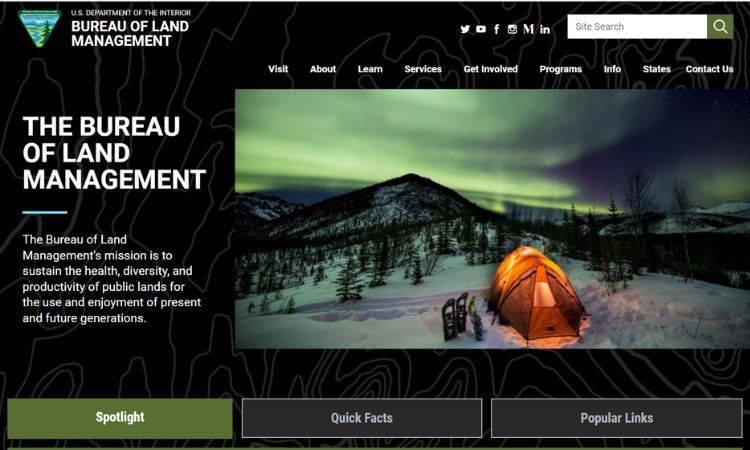
The Bureau of Land Management, or BLM, owns a lot of land on behalf of the Federal government. You’re allowed to camp at certain areas on all land owned by BLM. However, in certain cases, you might require prior permission since camping could be seasonal or conditional. Also, camping in certain places such as nuclear plants, military installations and other places isn’t allowed legally. Check for details of free camping areas nearby on the BLM website.
2. NFS Land
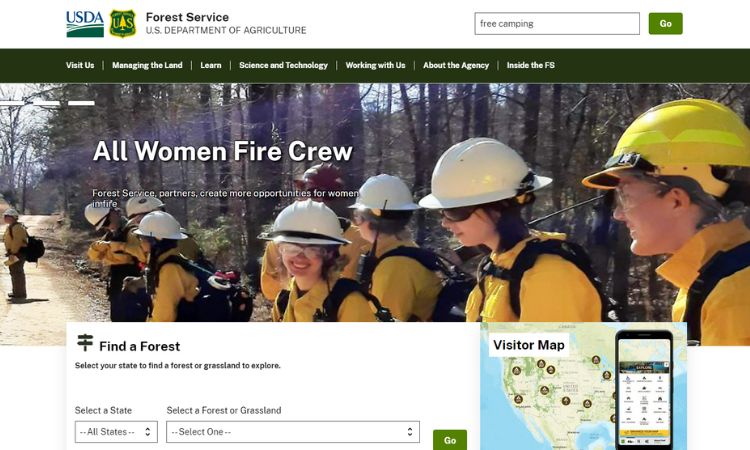
NFS or National Forest Service functions as part of BLM and other Federal agencies. They are in charge of national parks and wildlife reserves across the US. If you’re planning on camping near a national park, check their website for campsites nearby. In some cases, camping near wildlife reserves is banned for your safety. Furthermore, some NFS-free campsites are available only during certain seasons. You can check for facilities available at their free campsites online from the NFS website.
3. Shopping Area Parking Lots
Lots of people love to blend in with crowds and have a sort of unobtrusive camping experience. For such persons, parking lots of malls, superstores, museums and other public places is an ideal option. Here’s something to remember: sleeping in your vehicle isn’t permitted at all places, and you could get into trouble with the law for that. Also, it is impossible to pitch a tent at such places. Therefore, find local laws and get the necessary permission from store owners or other authorities before camping.
4. Cemetery Parking Lots
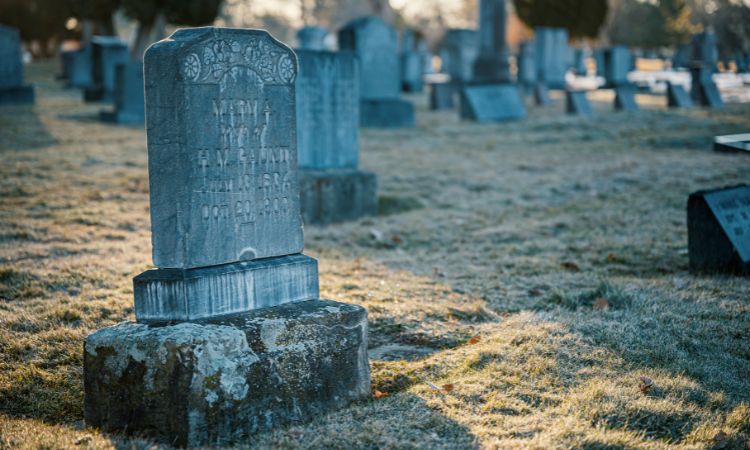
A lot of cemeteries in the US allow free parking. You can camp here too. However, make sure you get the necessary permission from the authorities in charge of the cemetery and its parking lot because the owners of the two places could be different. Generally, these parking lots are deserted after the evening because most funerals occur during the day. This means you can have a good sleep at night unless you’re scared of spooks.
5. Campers Grounds
Not all camper’s grounds are free because they have to pay for maintenance of electric and water supply points and other infrastructure. However, a few do give away free camping during off-season weeks. These are superb places for camping for free since you have access to electricity and water either free or for a small charge. And these places are located just a little bit away from some cities, which makes it quick to run in cases of emergencies.
6. Veteran’s Camping Areas
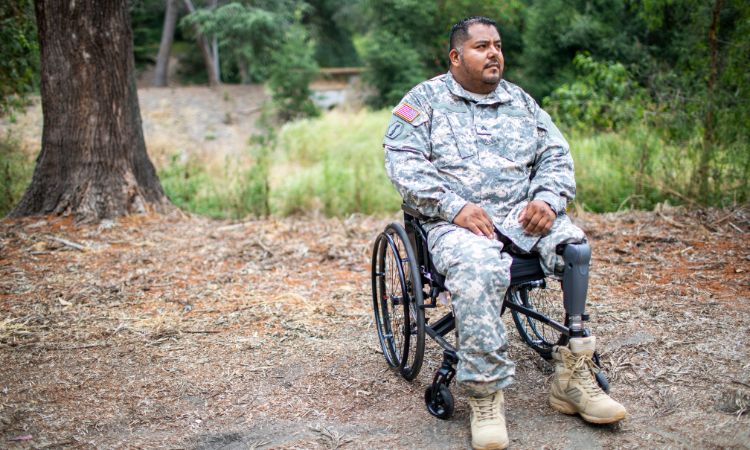
There’re lots of camping areas for US veterans. These are, however, accessible only by veterans and, sometimes, serving personnel of the US military. If you’re a veteran or serving service personnel, check with your unit for the nearest camping ground. These are generally free and provided as a small incentive for veterans and soldiers of the US.
7. Neighbourhoods
Do you love a particular neighbourhood? Then you could actually live there for a few days as a camper. However, you have to take some steps before driving down there and camping. The first is that you would need someone you know and who lives in that area.
That’s very important so that this person can vouch for your credentials and say that you’re camping there in case cops decide to check on who’s sleeping in the vehicle or neighbours report you as a suspicious person. Also, let the local cop precinct know the exact location where you’re camping.
8. Riversides
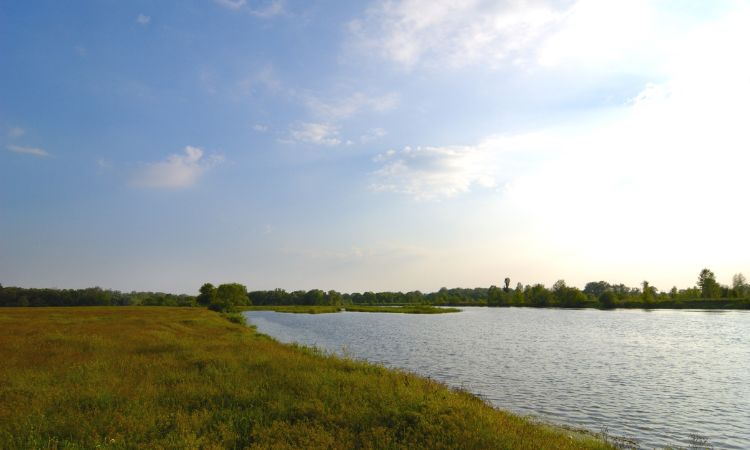
You can camp for free near rivers and lakes, provided they come within the purview of BLM and NFS or even have no owners. Make sure to camp a little away from the waterline since lakes and rivers also tend to have tides that we often don’t notice. Make sure you’re not in a restricted zone since some such areas are protected because they supply water to a city or town.
Subscribe to Free Magazines
One way to know for sure about free camping sites is by subscribing to online magazines and blogs for free. You will get a lot of stories and other content from campers and find out a lot of places for camping.
Also, you can learn about the pros and cons of a place. That way, you’re well prepared for a camping trip to a location where you don’t have to pay.
Wrap Up
I will wrap up by adding that you can also use a few apps that’ve come up nowadays for campers. Most of these work on subscriptions. However, they rarely contain details of free campsites across USA.
Emily Morgan is a personal finance blogger dedicated to providing practical advice on managing personal finances, budgeting, and achieving financial goals. With a commitment to continuous learning, Emily empowers readers to take control of their money and make informed financial decisions. Through her relatable and friendly writing style, she has helped numerous individuals transform their financial lives. In her spare time, Emily explores investment opportunities, researches financial technologies, and enjoys discovering budget-friendly ways to travel and experience new destinations.






